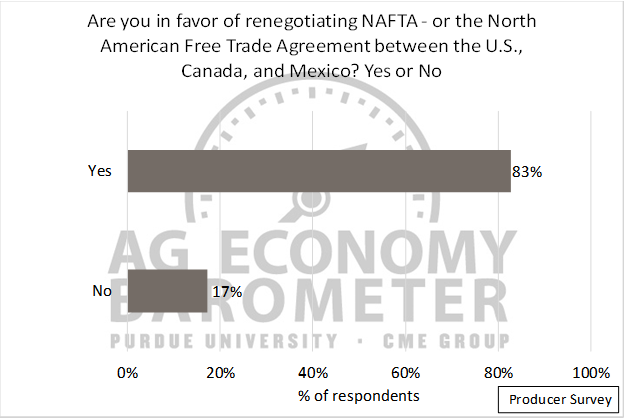
Unveiling the Giants: What is a Multinational Corporation (MNC) and Its Pivotal Role in Global Trade?
Have you ever wondered why your favorite smartphone is designed in one country, assembled in another, and sold worldwide? Or how a fast-food chain manages to serve the same burger in thousands of locations across different continents? The answer often lies with a powerful entity known as a Multinational Corporation (MNC).
MNCs are the colossal players of the global economy, weaving an intricate web of business activities that span across national borders. They are the driving force behind much of the international trade, investment, and technological exchange we see today. But what exactly are they, and why are they so crucial to how the world works?
This comprehensive guide will demystify multinational corporations, explain their core characteristics, explore the reasons for their existence, and delve deep into their indispensable role in shaping global trade and economies.
What Exactly is a Multinational Corporation (MNC)?
At its simplest, a Multinational Corporation (MNC), also sometimes called a Transnational Corporation (TNC), is a company that operates in more than one country. While its headquarters might be in one "home" country, it has significant business activities – such as manufacturing, sales, research and development, or service delivery – in several "host" countries.
Think of it like a tree with roots in its home soil, but its branches and leaves extend far and wide, drawing nourishment and spreading its influence across a vast landscape.
Key Characteristics of an MNC:
MNCs aren’t just any company that exports goods; they have distinct features that set them apart:
- Global Reach and Operations: This is their defining characteristic. They don’t just sell products abroad; they establish a physical presence through subsidiaries, branches, factories, or offices in multiple nations.
- Centralized Control (Often): While they operate globally, strategic decisions, financial management, and overall brand consistency are often coordinated and controlled from their headquarters in the home country.
- Vast Resources: MNCs typically possess enormous financial, technological, and human resources. This allows them to undertake large-scale projects and compete effectively on a global level.
- Complex Organizational Structure: Their operations involve a network of affiliates, subsidiaries, and joint ventures across different legal and cultural environments, making their structure highly intricate.
- Global Brand Identity: Many MNCs aim to establish a consistent brand image and product quality across all their markets, regardless of local variations. Think of the consistent taste of a Coca-Cola or the design of an Apple iPhone worldwide.
- Cross-Border Investment (Foreign Direct Investment – FDI): A significant part of their operation involves investing directly in facilities, equipment, and businesses in foreign countries.
Famous Examples of MNCs:
You interact with products and services from MNCs every single day. Here are just a few household names:
- Apple (USA): Designs products in California, but manufactures in China and other Asian countries, and sells globally.
- Samsung (South Korea): Produces electronics, home appliances, and more, with manufacturing plants and sales offices all over the world.
- Nestlé (Switzerland): The world’s largest food and beverage company, with thousands of brands and operations in nearly every country.
- Toyota (Japan): Manufactures cars in numerous countries outside Japan and sells them globally.
- McDonald’s (USA): Operates fast-food restaurants as franchises and company-owned stores in over 100 countries.
- Siemens (Germany): A global powerhouse in industrial automation, energy, healthcare, and infrastructure.
These examples highlight how MNCs touch almost every aspect of our lives, from the food we eat to the technology we use and the cars we drive.
Why Do Companies Become Multinational? The Driving Forces
The decision for a company to expand beyond its borders and become an MNC is a strategic one, driven by a combination of opportunities and competitive pressures. Here are the primary motivations:
-
Market Expansion and Growth:
- New Customers: When a domestic market becomes saturated or growth slows, MNCs seek new customer bases in emerging or underserved markets.
- Increased Sales & Revenue: Access to a larger global market directly translates to potential for higher sales volumes and increased profits.
-
Cost Efficiency and Resource Access:
- Lower Production Costs: Many companies move manufacturing to countries where labor is cheaper, raw materials are more abundant, or energy costs are lower.
- Access to Specific Resources: This could be natural resources (e.g., oil, minerals), specialized talent (e.g., tech hubs, skilled labor), or unique technological expertise.
- Favorable Regulations/Taxes: Some countries offer tax incentives, fewer regulations, or easier business environments that attract foreign investment.
-
Risk Diversification:
- Reducing Reliance on One Market: If a company operates in only one country, economic downturns, political instability, or natural disasters in that country can severely impact its entire business. Operating globally spreads this risk.
- Currency Fluctuations: Having operations in multiple currencies can help hedge against adverse exchange rate movements.
-
Competitive Advantage:
- Following Competitors: If rivals expand internationally, a company might follow suit to maintain its market share and competitive edge.
- Gaining Scale: Larger operations often lead to economies of scale, meaning the cost per unit decreases as production increases, making the company more competitive.
- Access to New Technologies & Innovation: Operating in different global hubs exposes MNCs to diverse ideas, research, and development, fostering innovation.
-
Proximity to Customers and Suppliers:
- Reduced Transportation Costs: Manufacturing closer to major customer bases or key suppliers can significantly cut down on shipping expenses and time.
- Better Customer Service: A local presence allows for more responsive customer support, tailored product offerings, and a deeper understanding of local market needs.
The Pivotal Role of MNCs in Global Trade
MNCs are not merely participants in global trade; they are its architects and main engines. Their activities profoundly influence how goods, services, capital, and knowledge flow across borders.
1. Driving Foreign Direct Investment (FDI)
One of the most significant contributions of MNCs to global trade is Foreign Direct Investment (FDI). This is when an MNC invests directly in a foreign country by building new facilities (factories, offices), acquiring existing companies, or expanding current operations.
- Capital Inflow: FDI brings substantial capital into host countries, which can be used to build infrastructure, develop industries, and boost economic activity.
- Long-Term Commitment: Unlike portfolio investment (buying stocks/bonds), FDI represents a long-term commitment, creating lasting economic ties and infrastructure.
- Economic Development: For developing nations, FDI from MNCs is a crucial source of external finance for economic growth and industrialization.
2. Facilitating Complex Global Supply Chains
MNCs are masters of global supply chains. They orchestrate the entire process of producing a good or service, from sourcing raw materials in one country, manufacturing components in another, assembling them in a third, and finally distributing the finished product worldwide.
- Efficiency and Specialization: MNCs leverage the comparative advantages of different countries (e.g., low labor costs in one, specialized technology in another) to produce goods more efficiently and at lower costs.
- Interconnectedness: This creates a highly interconnected global economy where countries rely on each other for different stages of production, fostering trade and interdependence.
- Logistics Expertise: MNCs often develop sophisticated logistics networks, including shipping, warehousing, and distribution systems, which benefit global trade as a whole.
3. Promoting Technology Transfer and Knowledge Sharing
When an MNC sets up operations in a host country, it often brings with it:
- Advanced Technology: New machinery, production techniques, and software that might not be available locally.
- Management Practices: Modern business strategies, organizational structures, and quality control methods.
- Skills and Training: Employees in the host country learn new skills, which can then spread throughout the local economy.
This technology transfer can significantly boost productivity, innovation, and competitiveness in the host country’s industries, helping them move up the value chain in global trade.
4. Catalysts for Job Creation and Economic Growth
MNCs are significant employers, directly and indirectly contributing to job creation:
- Direct Employment: They hire thousands, sometimes hundreds of thousands, of people in their various global operations – from factory workers and engineers to sales teams and administrative staff.
- Indirect Employment: Their presence stimulates job growth in supporting industries, such as local suppliers, logistics companies, retail outlets, and service providers.
- Increased Income and Consumption: The wages paid by MNCs boost local incomes, leading to increased consumer spending, which further fuels economic growth.
- Tax Revenue: MNCs pay corporate taxes, which contribute to government revenues in host countries, enabling investments in public services and infrastructure.
5. Enhancing Consumer Choice and Competition
MNCs introduce a wider variety of goods and services into local markets:
- More Options: Consumers gain access to products and brands that might not have been available domestically, leading to greater choice and potentially higher quality.
- Increased Competition: The entry of MNCs often intensifies competition in local markets, which can drive down prices, encourage local companies to innovate, and improve overall product quality and service for consumers.
6. Fostering Economic Integration and Globalization
By operating across borders, MNCs are fundamental agents of globalization. They connect economies, cultures, and societies more closely than ever before.
- Standardization: They often push for international standards in products, processes, and even business ethics, which can streamline global trade.
- Interdependence: Their global operations create economic interdependence, making countries more reliant on each other and fostering a shared interest in stable international relations.
The Other Side of the Coin: Challenges and Criticisms of MNCs
While MNCs undeniably play a vital role in global trade and economic development, their immense power and global reach also raise significant concerns and criticisms:
- Ethical Concerns:
- Labor Exploitation: Accusations of exploiting cheap labor, poor working conditions, and inadequate wages in developing countries.
- Environmental Impact: Concerns about pollution, depletion of natural resources, and lax environmental standards in host countries.
- Tax Avoidance: MNCs are often accused of using complex financial structures (like transferring profits to low-tax jurisdictions) to avoid paying their fair share of taxes in countries where they generate revenue. This can deprive host governments of crucial funds for public services.
- Influence on Local Politics: Their economic power can give them significant leverage over host governments, potentially influencing policy decisions in their favor, sometimes at the expense of local populations or industries.
- Cultural Homogenization: Critics argue that the widespread presence of global brands can lead to the erosion of local cultures and traditions, replacing them with a more uniform global culture.
- Crowding Out Local Businesses: The sheer size and resources of MNCs can make it difficult for smaller, local businesses to compete, potentially leading to the demise of domestic industries.
- Economic Instability: If an MNC decides to pull out of a country, it can leave behind massive job losses and economic disruption.
- Intellectual Property Disputes: Disputes over patents, trademarks, and copyrights can arise across borders.
Addressing these challenges requires a delicate balance between encouraging investment and ensuring that MNC operations are sustainable, ethical, and beneficial for all stakeholders.
The Future of Multinational Corporations
The landscape in which MNCs operate is constantly evolving. Factors like:
- Digital Transformation: The rise of e-commerce, AI, and automation is reshaping supply chains and customer interactions.
- Geopolitical Shifts: Trade wars, protectionism, and new alliances are forcing MNCs to rethink their global strategies.
- Sustainability and ESG (Environmental, Social, Governance) Demands: Growing pressure from consumers, investors, and governments to operate more responsibly and sustainably.
- Resilience over Efficiency: Recent global disruptions (like pandemics and supply chain crises) are prompting MNCs to prioritize supply chain resilience and diversification over pure cost efficiency.
MNCs will continue to be central to global trade, but they will need to be more adaptable, socially responsible, and technologically advanced to navigate the complexities of the 21st century.
Conclusion: The Indispensable Architects of Globalization
Multinational Corporations are far more than just large companies; they are the fundamental architects of modern globalization and the primary engines of global trade. From connecting supply chains across continents to driving innovation, creating jobs, and facilitating foreign investment, their impact is immense and multifaceted.
While their power comes with responsibilities and challenges that require careful management and ethical oversight, there’s no denying their pivotal role in shaping the interconnected world we live in. Understanding MNCs is key to understanding the dynamics of the global economy, international relations, and the future of commerce. They are, and will remain, the giants upon whose shoulders much of the world’s economic activity rests.



Post Comment